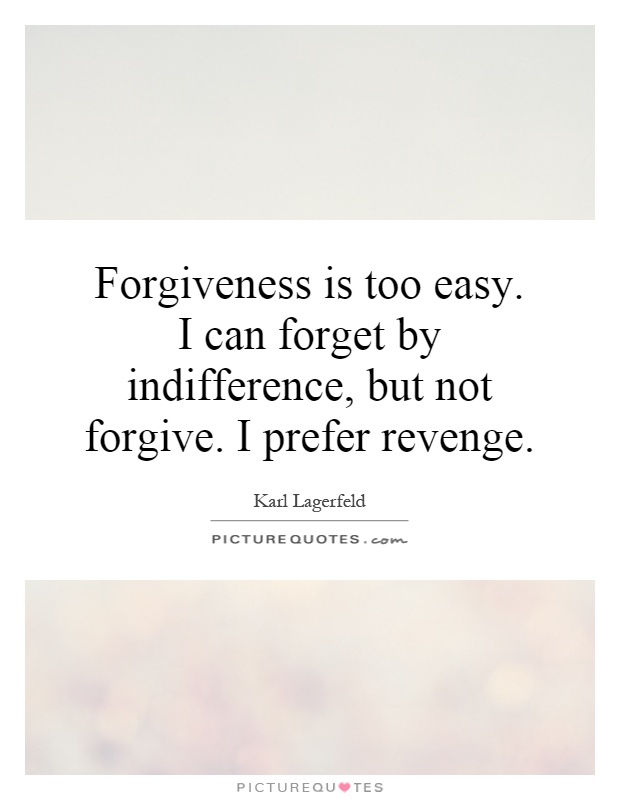Forgiveness is too easy. I can forget by indifference, but not forgive. I prefer revenge

Forgiveness is too easy. I can forget by indifference, but not forgive. I prefer revenge
Karl Lagerfeld, the iconic fashion designer known for his sharp wit and cutting remarks, was no stranger to controversy. Throughout his career, Lagerfeld made headlines for his bold statements and unapologetic attitude. However, one aspect of Lagerfeld's personality that often went unnoticed was his stance on forgiveness.Lagerfeld once famously said, "Forgiveness is too easy. I can forget by indifference, but not forgive. I prefer revenge." This statement sheds light on Lagerfeld's belief that forgiveness is a sign of weakness, and that holding onto anger and seeking revenge is a more powerful and satisfying response to being wronged.
In the context of Lagerfeld's life and career, this statement takes on a deeper meaning. Lagerfeld was known for his uncompromising vision and his willingness to do whatever it took to achieve success. He was not one to shy away from conflict or confrontation, and he often used his sharp tongue to put others in their place.
Lagerfeld's preference for revenge can be seen in his approach to competition in the fashion industry. He was known for his fierce rivalry with other designers, and he was not above using underhanded tactics to get ahead. Lagerfeld's drive for success and his desire to be the best often led him to seek revenge on those who stood in his way.
However, despite his reputation for being ruthless and unforgiving, Lagerfeld was also a complex and multifaceted individual. He was known for his generosity and kindness towards those he cared about, and he had a deep appreciation for beauty and artistry.












 Friendship Quotes
Friendship Quotes Love Quotes
Love Quotes Life Quotes
Life Quotes Funny Quotes
Funny Quotes Motivational Quotes
Motivational Quotes Inspirational Quotes
Inspirational Quotes